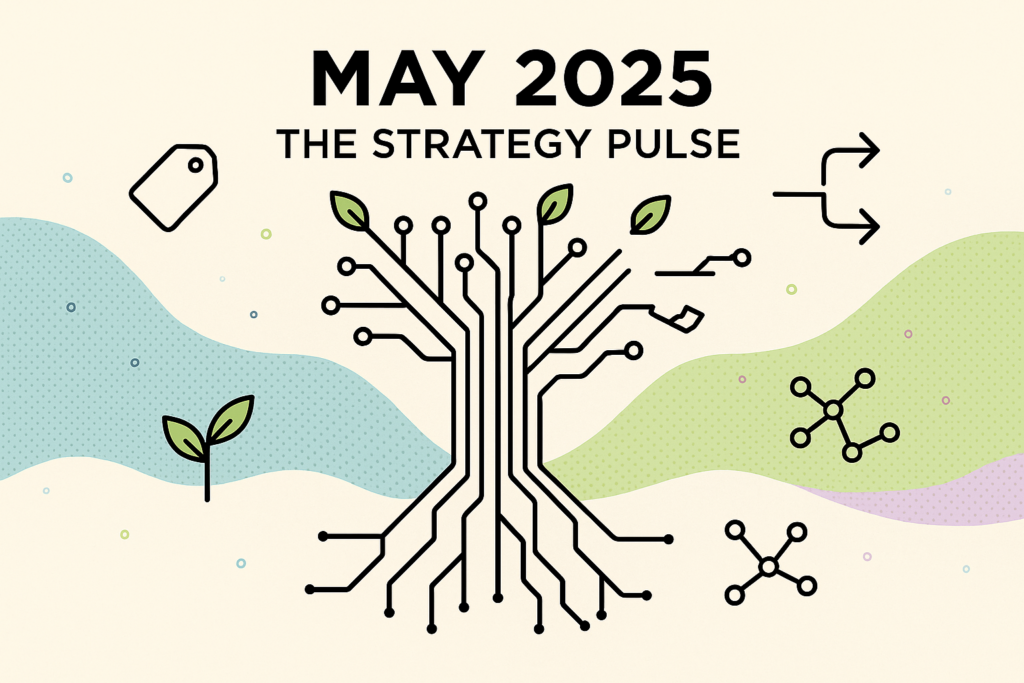Month: October 2022

Are we witnessing the downfall of the cover letter?
Are we witnessing the downfall of the cover letter?
October 28, 2022

Embarking on a job search is no walk in the park. Sprucing up your CV, dusting off your designated ‘interview suit’, filling out the same details on another online application portal for the 100th time…
But if there’s one part of the job application process that fills us all with dread, it’s writing a cover letter. As you glide effortlessly through every step of the online application, you’re suddenly met with a request that stops you in your tracks, like a guard that magically appears at the gates of a fairy-tale palace. There it is, standing out on the page in bold letters: please attach cover letter here.
Nowadays, the cover letter feels like an anachronistic remnant of the past that has somehow lasted all the way into the 21st century. It’s the most tedious and time-consuming step in the job application process. According to a recent poll from Fishbowl by Glassdoor, 58% of professionals believe that a cover letter is superfluous. Meanwhile, a 2017 survey revealed that only 26% of recruiters consider cover letters an important element of the hiring process.
So, this begs the question: is the cover letter dead and is it about time we buried it? No, many hiring managers and recruiters would argue. Whilst writing one is a burden, a cover letter could be more useful to a job application than we care to admit.
A waste of time?
Cover letters appear to be universally loathed by candidates and recruiters alike. For what they’re worth, it can feel like writing a cover letter is a disproportionate waste of time. You could spend hours carefully crafting a cover letter for a specific role, only for it to then go unread. Many recruiters openly admit to skipping over cover letters during the screening process.
In an AI-driven world, writing a cover letter can feel like shouting into the abyss. When you submit your application to an online portal, many larger companies now use AI and machine learning to analyse applications at the initial stages, meaning that cover letters don’t even end up in a hiring manager’s hands. For many candidates, it feels unfair that they’re expected to demonstrate their passion for a particular role and exhibit their personality when they can’t even be guaranteed a human response in return.
In a candidate-driven market, cover letters risk falling into obscurity. When candidates have the upper hand, can companies truly expect cover letters as a prerequisite? It’s easy to see why many candidates consider them to be the bane of their existence. Rejection in and of itself is painful enough, but added to that, all the effort wasted on a cover letter that you composed from scratch? It’s onerous and downright demoralising.
Nowadays, cover letters tend to feel like a routine tick-box exercise. And we’re increasingly finding – to the relief of many candidates – that more companies are making them optional, rather than a component as compulsory as the CV.
A necessary evil?
Though it can be tempting to skip over the gruelling process of writing a cover letter (especially when it’s optional), it’s still wise to go that step further and write one if you’re given the option. However, there’s no point whatsoever in churning out a generic, regurgitated cover letter for the sake of it. If you’re going to go the extra mile, it can’t be half-hearted.
When done right, a good cover letter is your secret weapon. Writing a detailed yet concise cover letter that is specific and targeted to the role in question is a labour of love, one that doesn’t simply go unnoticed by hiring managers. Up against the often mundane and robotic CV, the cover letter is a chance to showcase your personality. It’s your own personal marketing material.
Think of it this way. Hiring managers spend hours sifting through an endless pile of CVs belonging to faceless applicants, yawning as their eyes lurch carelessly over each one. But then, all of a sudden, the catchy opening line of your cover letter catches their eye. If you use the cover letter to your advantage – as an opportunity to show what you’re made of in a way the CV does not allow you to express – it breathes some life into your application.
Sure, there’s every chance that a hiring manager is inundated with applications and never happens upon your cover letter in the first place. But it’s crucial to change your mindset. As you’re composing a cover letter, don’t think to yourself: this is a waste of time, no one’s going to read it anyway. Instead, tell yourself: I’m using this added opportunity to make sure a glimmer of personality shines through on my application. Adopt a more positive mindset about the possible outcomes of writing a cover letter. You have more to gain from writing one than you have to lose by not.
And in particular cases, a cover letter is indispensable. Particularly if you’re working in a creative field or industry. If this is the case, the cover letter serves as a prime opportunity for you to sell your wares; let your creativity shine forth from the page in a way that isn’t possible simply by listing your skills and successes in your CV.
A cover letter is also critical if you’re looking to change careers completely. If you’re looking to pivot into a new sector, you should be utilising the cover letter as a chance for you to clearly explain how your experience is transferable to a new role. A cover letter gives you a voice at an otherwise pretty restrictive early stage of the application process; a voice that you can then elaborate on once you’ve made it to that coveted interview.
Granted, that doesn’t make writing a cover letter any easier. Useful as they may be in certain cases, they’re a pain to create. The easiest way to tackle this issue is creating a cover letter template, and simply adapting this to the role in question. That doesn’t mean just copying keywords from the job ad into your template; you still genuinely have to think about what you can bring to the company and why you want to work there. But having a template at your disposal makes the thought of writing a cover letter that little bit less daunting.

Navigating self-doubt in the job search process
Navigating self-doubt in the job search process
October 13, 2022

Scrolling through a job board, your eyes light up as you stumble across an ad for your dream career opportunity. Five little words peek out at you from beneath the job title: your profile matches this job. You can feel yourself growing drunk on excitement but are cautious not to get carried away just yet. You’ve been down this road before, and you’re wary that a tripwire could rear its head at any moment, instantly sobering you up.
Alert and tense, you scan the job description with eagle eyes. Check, check, check. Your experiences and skills align near-perfectly with the job expectations listed. The stars are aligning. You edge slowly towards the apply button when all of a sudden, you’re stopped in your tracks. There it is, the dreaded roadblock on your path to success. In faint grey letters, yet somehow tauntingly glaring out at you, right above the apply button. Over 200 applicants.
And just like that, your confidence deflates like a week-old birthday balloon. You suddenly become aware that an army of hundreds of faceless robots is up against you. Your mind is instantly flooded with self-deprecating thoughts. That little voice in the back of your head begins its age-old tirade: they’re all just as qualified as you, if not more; they’re all more confident than you; they’re all more creative and intelligent than you. How could you possibly stand a chance?
Believe it or not, up to 85% of people suffer with feelings of self-doubt. According to a survey by Forbes, 6 out of 10 executive women most experienced imposter syndrome at times of pivotal change in their careers; whilst searching for a new role, for example. It can feel incredibly isolating, but it’s far more common than we think. Even the most seemingly confident among us are probably suffering from it in silence.
But what can we do to tackle these toxic and inhibiting thoughts?
Reach out to recruiters
Liberate yourself from the chains of the dreaded job board by getting in touch with recruiters specialising in your field. When working with recruiters, you no longer feel like a number buried at the bottom of a towering pile of anonymous applications. When you face the job search alone, simply floating your CV out into the abyss, this will instantly put you on the backfoot and make you feel pessimistic about your chances of succeeding.
Finding a recruiter that is a good match for you is a godsend when it comes to tackling self-doubt. Suddenly, the job search seems a little less daunting, as you’re treated like an individual, and the process of hunting for a job feels less cut-throat and more human.
A good recruiter will have a vested interest in you feeling your best throughout the job search. To an extent, they act as your cheerleader, instilling you with some much-needed confidence about your capabilities as they guide you through the job application process.
Don’t fear rejection
The belief that rejection is synonymous with failure seems to be entrenched in society, when in reality this couldn’t be further from the truth. It’s about time we changed that narrative.
It’s natural to experience that all-too-familiar sinking feeling when an email comes through from a hiring manager, starting with the classic refrain: thank you for applying. We regret to inform you…
However, this shouldn’t knock your confidence and make you doubt yourself. Rejection is a sign of determination. It’s better to apply for opportunities and get rejected, than simply sit on your hands and have nothing to show for it. Rejection shows that you’re putting yourself out there, and that takes a lot of courage.
Surround yourself with positivity
In order to overcome self-doubt, it’s crucial to immerse yourself in an environment brimming with positive energy. But there’s no hard-and fast rule stating what this looks like.
For some, following successful influencers on LinkedIn might be the answer, as their inspirational stories could serve as a source of motivation. For others, this might be the most detrimental move imaginable. It could set the wheels of a toxic cycle of comparison in motion, feeding into even more self-doubt. Ultimately, it comes down to personal preference, and you need to figure out what works for you. Your social media feed should be a positive space, not one that makes you feel bad about yourself. Filter out anything that makes you feel inferior or less worthy.
When cultivating a positive circle around you, it could be worth considering mentorship or coaching. This doesn’t mean you have to enlist the help of an expensive self-help coach; it could be as simple as messaging someone in your field that you look up to and seeking out their advice. There’s no shame in dropping them a line asking for their insights.
Optimistic self-talk
Negative self-talk has become far too normalised. Until we start being kinder to ourselves, self-doubt and imposter syndrome will continue to linger.
Whenever we put ourselves outside of our comfort zone, we risk exposing ourselves to damaging, self-deprecating thoughts. We’re genetically hard-wired to desire safety and security, so when we undergo big changes and face periods of uncertainty, our minds play out ‘worst-case’ scenarios as a defence mechanism, to guard against failure. However, this often spirals out of control and leads to catastrophising.
That little voice wriggles to the surface, spewing the same-old rhetoric: what if you get rejected; what if everyone judges you; what if you never succeed? For every what if that comes to mind, conjure up a so what? For every negative outlandish outcome, arm yourself with a counter-thought to keep self-doubt at bay.
Stop caring what others think
One of the main things that holds us back and limits our self-belief is the fear of judgement from others. Our minds are constantly abuzz with worry about how we are perceived by our colleagues, bosses and friends.
We fear the prospect of people seeing us fail. That familiar internal voice creeps up on you like clockwork: it’s embarrassing, you’ll look silly. People will think you aren’t any good at what you do.
We shouldn’t let the opinions of others damage our self-belief. Do things for yourself, and don’t preoccupy yourself with how it comes across to outsiders if things don’t go exactly to plan straight away. Ultimately, you’re taking proactive steps to change your life for the better, and in the long run this will pay off. Better to live a full life putting yourself out there and taking risks than live a half-life worrying about what other people think.

Data Digest #3: DNA Detectives and Hotel Hijacks
Data Digest #3: DNA Detectives and Hotel Hijacks
October 4, 2022

The cogs of the data world are perpetually turning. Data never sleeps. Brace yourself for an exciting overview into some of the top data news stories that have been gracing our screens over the past month.
The Telegraph: catching criminals via ancestry websites
Law enforcement professionals don’t simply give up on “cold cases”. They don’t put up their hands in surrender and admit defeat, leaving the files in a dark room in the corner of a police station to gather dust. Police are always investigating historical cases, in a bid to provide families with some long-overdue justice. And recently, a new technology has helped to crack the code on hundreds of unsolved crimes.
Investigative genetic genealogy uses DNA data alongside traditional genetic genealogy to uncover culprits who are yet to face repercussions for their actions. This technique garnered major media attention four years ago, when distant relatives of murderer and rapist Joseph DeAngelo posted their genetic data to the ancestry website GEDmatch, ultimately leading to his arrest.
IGG has been hailed by many as a breakthrough technological development. However, this technology is rife with ethicality concerns. Those using ancestry websites could never have imagined that their DNA data would end up putting someone they’re related to behind bars. Ultimately, consumers have raised valid concerns about the risk this technology poses of crossing the line. It’s also unlikely to have as much of an impact in the UK as in the US, where DNA databases are known to be more advanced.
The Telegraph: How police are using DNA from ancestry websites to catch murderers
The New York Times: Smartphone data predicts suicides?
Is it possible to predict suicide by using smartphone data? That’s exactly what a group of Harvard psychologists are trying to figure out. A research project currently underway is experimenting with new developments in AI and machine learning to gauge whether it’s possible to predict suicide and prevent it before it happens. Patients participating in the study are being monitored through their smartphones via biosensors, a GPS, questionnaires, etc. The information garnered from these different technologies is fed to researchers at the Harvard psychology department, who then decipher what it can reveal about the patient’s current mental state.
Researchers are keeping an eye out for an array of warning signs, such as the patient’s sleeping pattern or a worrying result on a mood questionnaire. If a patient is flagged as reporting unusual or worrying behaviour, indicating that they plan on hurting themselves, a researcher will get in touch with them via telephone call, and call 911 to attend to them.
With a plethora of data (quite literally) at our fingertips, it makes sense to be tapping into this resource by potentially saving lives. However, this kind of monitoring isn’t without its fair share of controversy. For one thing, it is undoubtedly impossible to predict every suicide in this way. It would be perfectly easy for a patient to mislead clinicians, simply by not being totally candid with their questionnaire answers. There’s also the very real risk of false positive results, which would lead to patients facing the trauma of an unwarranted intervention. And it’s also likely that a vast number of people experiencing suicidal thoughts would not be in the headspace to consent to this type of monitoring in the first place.
The New York Times: Can Smartphones Help Predict Suicide?
BBC: Hacking hotels
The Intercontinental Hotel Group were in for a nasty shock when they discovered that a Vietnamese couple had hacked into the company’s computer system. The couple proceeded to reach out to the BBC on the messaging app Telegram, holding up screenshots like victory trophies to prove that they had indeed gained access to the company’s Microsoft Teams server, as well as their internal Outlook emails.
The pair originally planned a ransomware attack, but when they realized that they had been stopped in their tracks, they went ahead and caused as much damage as they could anyway, purely out of spite. They proceeded to perform a wiper attack, which destroys data and documents, never to be retrieved again. Whilst they did not obtain any customer data, they did manage to get hold of some corporate data.
The hackers infiltrated the system via a misleading email attachment, that led to an employee downloading a deceptive piece of software. They were then able to make their way into the more private quarters of the computer system without much hassle. Why? Because of the absurdly easy and common password: Qwerty1234. The first password you’re warned against using in ICT lessons in primary school. It was equally surprising that 200,000 IHG employees had access to this sensitive content. This incident could serve as a reminder of the importance of putting a watertight security system in place, to protect against malicious attacks such as these.
BBC: IHG hack: ‘Vindictive’ couple deleted hotel chain data for fun
The Guardian: TikTok and children’s privacy
Following an investigation conducted by the Information Commissioner’s Office, TikTok has been issued with a ‘notice of intent’ regarding a potential breach of UK data protection law between May 2019 and July 2020. The app now could face a fine of £27 million. The ICG’s preliminary findings are that TikTok may have processed data belonging to children under the age of 13, without parental consent. As part of this alleged breach, TikTok may have exposed special category data, such as the children’s ethnicities and political opinions.
Whilst the investigation is still very much underway, TikTok representatives dispute the findings of the preliminary investigation thus far. The app is just one of over 50 other online services currently being investigated by the ICU, in a bid to assess whether they too are complying with child data protection laws. Meta also came under scrutiny this year, when they were fined £349 million for allowing teenagers to create online profiles that openly displayed their personal phone numbers. The world of data privacy is a minefield, and companies have a responsibility to protect the most vulnerable users of their online services.
The Guardian: TikTok could face £27m fine for failing to protect children’s privacy

